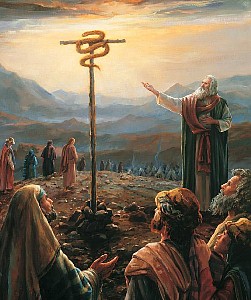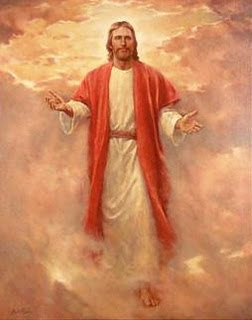Dear What Women Know,
I am writing in regards to your article that I came across a few hours ago. Right off the bat the introduction to your article states, “Several ideas within the body of President Beck’s talk conflict with our inspiration and experience. We are authors of our own lives and this is the story we know to be true.” Right away I know that you don’t care what God thinks or that God gave us our lives here on earth; you only care about yourselves, your wants, and your needs. I'm instantly turned off by your lack of credibility.
The first point you make is a philosophy of men mingled with scripture. It says that nurturing is an attribute that communicates patience, peacefulness, and care but it says that men are also called to nurture. That is not true; God has never said men are called to nurture, just women. (In case you don't believe me, look at the "Proclamation to the World" again.)
The next two points talk about yourselves again; what you want and what you need. You twist Sister Beck’s words to make it seem like she doesn’t care about the condition of women who are in poverty, and you make it seem like she only cares about the outward appearances of cleanliness, when she obviously talked about being pure in heart—which is different.
The next point talks about housework. Yes, children learn by example and instruction, but since the mothers stay home with their children, they are the ones who will be teaching them the majority of it while the husband goes and works hard outside the home. Both parents are working hard, they are just working hard in different ways.
I think it’s great that you point out that you love and care for all children, no matter where they come from or what they’re like; but God has commanded us to become parents and to not put it off if we are able—so your saying of we “choose how, when, and whether we become parents” is selfish. God has commanded us to multiply and replenish the earth, so if you are claiming to be Latter-Day Saints, you need to be claiming every aspect of the gospel, not just picking and choosing out of your favorites.
Next, “We reject teachings that encourage women to shoulder ultimate responsibility for every aspect of child-rearing and family life” pretty much states that you do not respect the prophets’ teachings and therefore God’s word on this matter. You blatantly stated that you reject those teachings! How can you claim to be affiliated with the Church when you reject obvious teachings from it?
Yes, the choice to have children doesn’t rule out other influences and power you can have, but didn’t you read the talk?? The role of motherhood is the GREATEST influence and power you will ever have! You should never take that for granted.
And finally, the Book of Mormon story shows us that those mothers taught their sons correct principles and the gospel, where God would show them mercy for being obedient and righteous. Never does God say that he will spare the wicked; only that he will protect the righteous. These mothers taught their sons that, and since the boys wanted to protect their people, they had faith that God would protect them, so they went to protect their freedoms too. What would you say to your son if he chose to join the army to protect our country? “No son, I don’t want you to go and protect our freedoms. Instead, stay home and let’s try to work this out peacefully, even though war is already happening. I don't want you to go and kill others out of defense, but I'm fine with other mom's boys going to protect us instead.” When war is raging, people have to step up to fight. Those mothers were proud of their sons for being so brave and true to their country, and we should do the same with ours.
All in all, if you are going to say you are affiliated with the Church, then step up and acknowledge what God has commanded us to do. Because fighting back against what has already been spoken of as truth from Him, is fighting against the Church. Read section 76 of the Doctrine & Covenants (the same book you quoted from in your article) if you don't understand the severity of fighting against God and His Church.
No matter how innocent your philosophies sound, they are still against God's word. And God's word doesn't change.
I hope that you sincerely reconsider and reevaluate your testimony of what our prophets have taught us. It doesn't take long for society and man to get into our heads and distort everything we know about what is true. But, it also doesn't take long to say a prayer and truly ask God what our roles in this life are supposed to be! It's quick on both sides, but it does take more effort on our part to truly side with God. (That's how you know it's the truth. This life was never supposed to be easy.)
Thank you,
A Mother Who Knows














